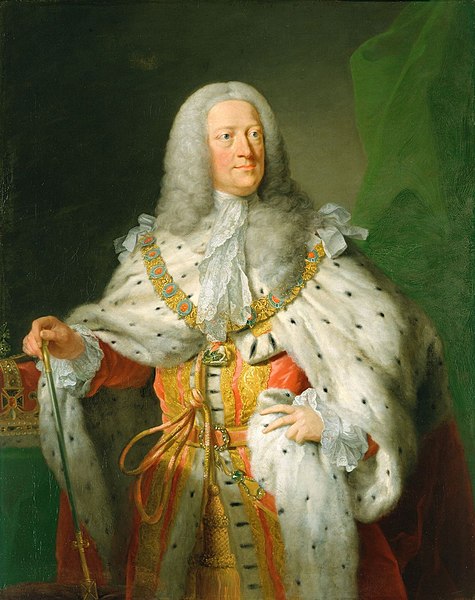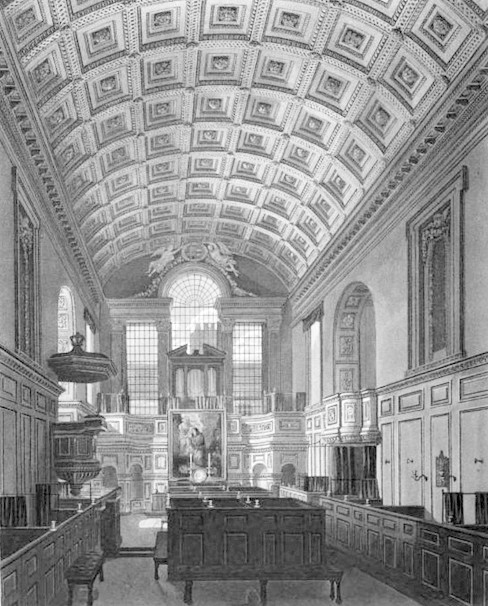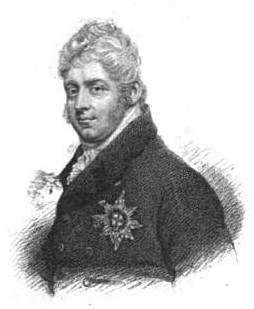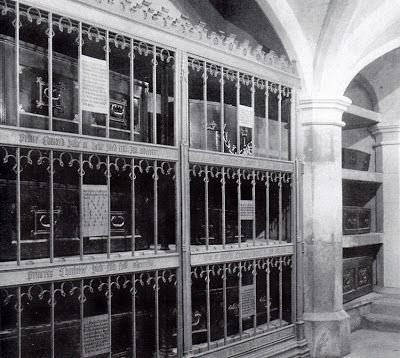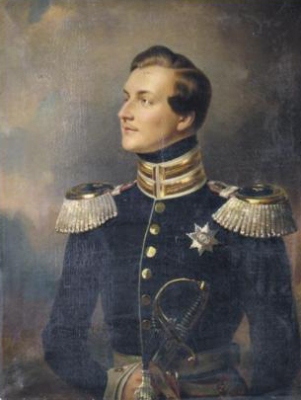King George V
Part Two, Chapter Twenty-Six: The Rising Star
As a grandson of King George III, the only son of the Viceroy of Hanover and as a first cousin to King George V, Prince George of Cambridge was born into a world of privilege with an impressive career of military service and royal duties laid out before him. He spent much of his childhood in Hanover at Herrenhausen with his parents and his teenage years with his two younger sisters Augusta and Mary Adelaide at Cambridge House in London. At the age of just 16-years-old, George was gazetted a colonel in the Hanoverian Army by his uncle, the late Duke of Clarence, and since that time the Prince had followed in his father’s footsteps embarking on a military career that had most recently seen him attached to the staff at Gibraltar. But behind closed doors, George was turning into anything but an officer and a gentleman. He had quickly developed a taste for vice and with his parents’ home in Piccadilly serving as a very grand bachelor pad when they returned to Hanover. The Prince was fast gaining a reputation as a prolific gambler and womaniser. When this spilled over into rumours that he had just made Lady Augusta Somerset, daughter of the Duke of Beaufort, pregnant, he was sent to Ireland and as we have seen, the King made every possible effort to try and help George wipe the slate clean. But the Prince did not exactly embrace his opportunity for a fresh start.
The 21-year-old Prince might have been suitably chastised by his cousin into moderating his behaviour but George showed no real appetite for contrition. Instead, he caused a stir at the Richmond Barracks upon his arrival at Inchicore, Dublin in July 1840, complaining that his rooms were “damp, horribly tiny and still crammed with the previous occupant’s possessions”. The previous occupant was in fact Henry John Cumming [1], the Colonel of the 12th Royal Lancers who had voluntarily vacated his rooms so that the Prince might be more comfortable. George refused to stay in the barracks until the situation was resolved and took himself off to the Shelbourne Hotel on St Stephen’s Green where he took a suite of rooms which on his very first night in Ireland turned into a makeshift casino. Trying to impress his fellow officers (though not Colonel Cumming), George hosted nine of his comrades in his sitting room where they drank whisky and played cards for stakes the Prince absolutely could not afford.
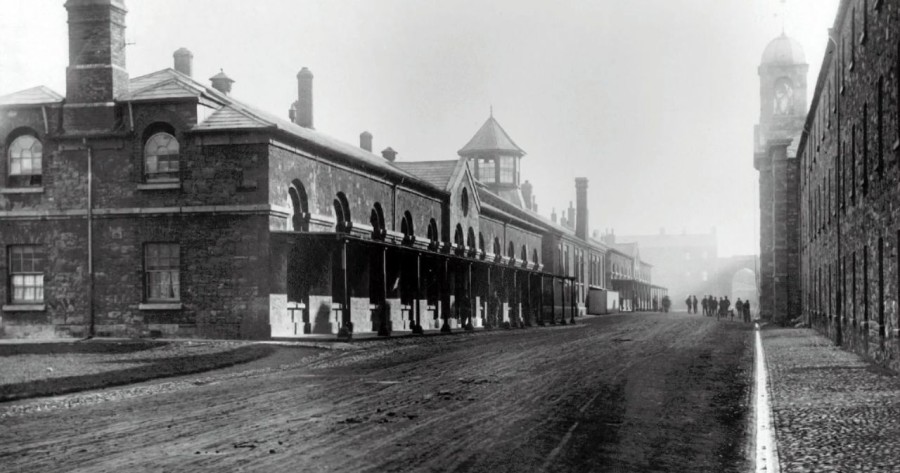
Richmond Barracks.
The following day, Colonel Cumming personally went to the Shelbourne to see Prince George. He demanded the Prince return to the Richmond Barracks and hastily paid the hotel bill from regimental funds, disciplining those who had joined the Prince for his little party but not metering out any real punishment to the Prince himself. Within a few weeks, George had settled down at the Barracks but if Colonel Cumming thought George had corrected his behaviour he was about to get a very nasty shock. During his early days in Dublin, Prince George made a close friend in Lawrence King-Harman, the 24-year-old younger son of the Viscount Lorton. Whilst his elder brother Robert stood to inherit the Viscountcy and his father’s estate at Rockingham, at the age of 22 Lawrence inherited Newcastle, the largest landed estate in County Longford, at Ballymahon, from his maternal grandmother. This made Lawrence a very wealthy young man and with his wife of three years, Mary, he soon became one of the most prominent figures in Dublin high society, preferring to stay in Ireland rather than migrate to England as others of his background and class were prone to do.
It was therefore natural that the King-Harmans would seek out and befriend Prince George of Cambridge during his time in Ireland and he was only too pleased to make their acquaintance and take advantage of their generosity. King George V had engaged a private detective to follow his cousin’s movements in Ireland to be certain that he was behaving himself and when the early reports came back, they were not only mostly favourable but always included mention of the King-Harmans who were described as “a most suitable couple of very good background and both widely respected and admired here in Dublin”. When he was not on duty at Richmond, Prince George was said to spend “almost all of his time with the King-Harmans, often attending the theatre together and then dining at Mr Harman’s townhouse or at the Castle Hotel on Great Denmark Street”. After a few months the King believed all was well and so the detective was recalled to London. But this was not entirely the case. Whilst outwardly the young Prince was corrected in his behaviour, behind closed doors and out of sight of the private detective, Prince George had begun an intimate liaison that threatened to unleash an almighty scandal on the British Royal Family back home in England.
Prince George first met the 28-year-old Margaret Douglas just two weeks after his arrival in Dublin when she was presented to him following an evening performance she gave at the Adelphi Theatre. Pretty soon, Margaret found herself included in the King-Harmans' house parties and she even managed to bag herself an invitation to Abbeville House as a guest of the Cooper family. When the Prince had a few days to himself, he spent them at the Harmans’ townhouse – but the Harmans were not always there. Mr Harman had allowed Prince George to use his Dublin home to entertain his new lover whenever the mood took him. Margaret always arrived the evening before if the Harmans were present and would not leave until well after the Prince had gone. To anybody looking on, all they could report was that the Prince was often in the company of an actress (the King’s detective did not) but had they done so, this was hardly a criminal offence. At the very least, Prince George seemed to be conducting this affair discretely. [2]
This might have remained the case had Margaret Douglas (“a rising star of the Irish stage”) not given a rather brilliant matinee which earned her a glowing review in the
News Letter, a paper published in Belfast but circulated island wide. The Tory unionist run daily loved nothing more than to report on British royalty and for some time they had taken great pleasure in telling their readers that Prince George of Cambridge was now resident in Dublin; naturally in their review of Miss Douglas’ performance at the Adelphi in Pearse Street they commented that “among her most ardent admirers in the audience was the dashing Prince George of Cambridge who led a standing ovation at the conclusion of a very fine performance”. A small sketch of Miss Douglas accompanied the review captioned; “
The Rising Star”.
The
News Letter was widely read and it must have come as quite a shock to Captain William Marsden of Rochestown, Cork, when he sat down to breakfast with the daily paper only to see an undeniable likeness of his wife, Ada, looking back at him. He later said; “I knew it to be more than a woman who bore a remarkable likeness to my wife because I saw that she had adopted the name Margaret Douglas, which was the name of her deceased mother”. Captain Marsden had not seen his wife for two years after she had announced her intention to abandon him leaving their comfortable manor house in Rochestown and disappearing without trace. In order to avoid scandal, Marsden told his friends and neighbours that his wife was unwell and had gone to a sanatorium on the coast; yet here she was being toasted as one of the finest theatrical talents in all Ireland. Captain Marsden immediately left his two children in the care of a maid, packed a small trunk and headed off for the Adelphi Theatre in Dublin.
Back in England, King George V was in a much happier mood than he had been in recent weeks. Slowly emerging from his sulk, there was much to be positive about. In later life, the King was quoted as saying of his personal approach to his role as sovereign; “I do not act, I react”. In the aftermath of his knuckle-rapping from Professor Albrecht in Hanover, he had done just that. The monarch’s personal relationship with his subjects in Hanover had been “cordial but distant” for many years now and the King admitted that he should have expected some to look for signs of a change in attitude. His ancestor King George I, had spent much of his time in Hanover, indeed one fifth of his reign was spent in his Electorate with months-long visits paid in 1716, 1719, 1720, 1723 and 1725. The British people were not keen on this arrangement, already suspicious of a King who spoke no English and who’s coronation had seen widespread riots against “Old German George”. The historian Thackeray suggests that, had the King not “spared us from the poison of Popery, he might well have been rejected by his people or forced to relinquish his primary inheritance”. [3]

King George I.
Whilst George II shared his father's approach to Hanover (making twelve trips between 1727 and 1760), George III took great pains to avoid similar criticisms. He saw Hanover as “that horrid Electorate that has always lived upon the very vitals of our poor country” and he tried to project an image of a fine old English gentleman who just so happened to have inherited German land which he would never visit but which he retained for sentiment’s sake [4]. The closest link to Hanover in England was a suite of rooms set aside in St James’ Palace named the “German Chancery” which dealt with all matters relating to Hanover. George IV was only too happy to allow this state of affairs to continue. Like his father, he never visited Hanover during his reign and so by 1840, almost eight decades of muted relations with the British Royal Family’s German possessions had set the standard for how Hanover should be viewed from the United Kingdom. It was a personal possession of the Crown, a kind of overstuffed country estate which the British monarch just happened to call his own. On occasion, the Head of the German Chancery (Count von Ompteda) called on the King to present memoranda from the Privy Council of Hanover but mostly, the Chancery had no great role to play and was only familiar to those in England who assiduously studied the Court Circular.
George V wished to make amends. For weeks, the King spent time poring over family documents in his new library at Hanover House and making drafts of a plan he felt confident would boost the presence of the Crown in Hanover. Drawing inspiration from the annual festivities that surrounded Garter Day in June, the King had in mind a similar celebration that might be held in Hanover each year before he made his return journey to England after the king and Queen had visited the Princess Royal and other family relations in Germany. ‘Hanover Week’ was to see Their Majesties take up residence at Herrenhausen for just seven days with a welcome parade hosted by the Viceroy, an address made to the Assembly, a luncheon held in honour of the Privy Council, a garden party and a State Ball but the highlight was to be a parade and thanksgiving service focused on the Royal Guelphic Order founded by the late Prince Regent before his death in 1815.
It was an ambitious programme and essentially amounted to the King and Queen taking their calendar for 52 weeks of the year in England and applying that to just seven days in Hanover. George felt he had achieved a great deal, an early example of how well he could ‘react’ to a problem. He took great pains to plan each and every detail of Hanover Week which were presented to a curious Count von Ompteda, Head of the German Chancery, who noted in his diary; “His Majesty was most enthused about these proposals which were heavily illustrated with sketches in his own hand. The Queen sat with us for a time and she often remarked how clever the King was saying ‘Isn’t that a good idea?’ and ‘Oh Georgie! How clever you are for thinking of that!’. I was very intrigued to see Their Majesties at work in this way for clearly the King had spent many days explaining his ideas to his wife who was equally as eager to see them made a reality”.
The King wished to put these proposals before the Prime Minister as soon as possible but by the time their weekly audience came in London, there were far more important matters to discuss. Sir James Graham had the latest developments in the Oriental Crisis. The Great Powers had issued a ‘
Convention on the Pacification of the Levant’ which gave Ibrahim Ali exactly thirty days to surrender to the advancing European fleets which would strike at Beirut and Acre if he did not [5]. Graham was confidant Ali would concede, without the French or Spanish as guarantor he faced annihilation should he attempt to press on to take Constantinople. There were even rumours coming in from the region that the defected Ottoman Fleet which Ali so desperately needed was on the verge of mutiny and were to humbly beg forgiveness from the Sultan in who’s name they were once again willing to fight. The Prime Minister predicted “great success without a single shot fired” and this would pave the way for a conference in London for the victors to carve up the spoils between them. The King beamed. He felt proud that he could claim a small part in this optimistic turn of events. But now Sir James looked a little nervous.
“On another matter Your Majesty, I fear I must prepare you for some unpleasantness in the coming days”
George raised an eyebrow and lit a cigarette; “Unpleasantness? To what order?”
Sir James decided he could prevaricate no longer.
“Sir, I have tried to keep this from your door for some time now but it really cannot be avoided any longer. In a few days’ time, parliament shall open the debate on the matter of the financial arrangements for the marriage contract of Her Royal Highness Princess Charlotte Louise”
“Ah”, the King muttered sarcastically, “My favourite subject”.
“The fact is Sir”, the Prime Minister began, “I fear that the Tsar has been too greedy in his demands and I must warn Your Majesty most regretfully that many of my colleagues, in agreement with those on the opposition benches, do not feel they can approve the figures for the dowry or annuity presented to us in the amendment to the Civil List as agreed last week”.
The King nodded; “Well I can agree with you there Sir James, the Tsar is being most unreasonable in my view, £60,000 indeed! But I have already prepared my sister for the fact that parliament will not approve that amount, that is why I gave my word to Disraeli last week that I thought Gladstone’s proposal of £30,000 was more than generous”.
The Prime Minister sipped at his sherry.
“The Tsar has not made his position any more welcome with his offer to purchase the lease of Claremont House”
“Outrageous!”, the King agreed, “I wrote to Sasha on that point. And I told my sister that she must not be bullied into supporting such a thing. I suppose you know I have been black balled?”
The Prime Minister looked puzzled; “Black balled Your Majesty?”
“In my own house, what?”, George said half-seriously, “They all ganged up on me. The Queen, my sister, even Aunt Mary. I’m now to attend a blessing ceremony at the Imperial Russian Embassy and if that were not enough, I’ve to host a reception here at Buckingham Palace and then throw a party for that old bore Nicholas and his stick of a wife at our Embassy in St Petersburg”
"Yes...I had heard”, Graham said kindly, “I sympathise Your Majesty. But even so, I cannot promise that my colleagues in the House of Commons will not protest the matter of the dowry. In other words Sir, I am preparing you for the fact that parliament may show its displeasure at the sum presented to them…by…”
“Out with it man”, the King encouraged the Prime Minister, “By what?”
“By rejecting the amendment to the Civil List, Your Majesty”
To Graham’s surprise, the King simply nodded.
“I am pleased you told me that”, he replied, “I had expected it as a possibility. Well Sir James, you have my gratitude in this matter. As ever, I shall take your advice if the situation follows your prediction”
Feeling the mood was unusually more relaxed, the Prime Minister felt it possible to bring up another delicate matter. But just as he opened his mouth to change the subject, a clock chimed and the King stood up, Graham jumping to his feet and bowing as George thanked the Prime Minister for his time. Graham left the room and shook his head. He supposed the “other matter” could wait for a week or two more, after all, it was only gossip at this stage and he doubted there was any real danger in it. How wrong he was.
As July turned to August, the Royal Family prepared themselves to lose one of their most beloved members. Princess Augusta Sophia, the King’s aunt and sister to Princess Mary, was now so gravely ill that a bulletin was issued informing the public that her condition was “most serious” and that her physicians were “regretfully in agreement that Her Royal Highness is reaching the end of her life” [6]. The older members of the Royal Family were devastated by this turn of events, though it was naturally expected. Princess Augusta had been unwell for the last year and on two occasions a doctor had been urgently called when she had taken turns for the worst. Now the inevitable seemed a matter of days away, weeks at the most. A heartbroken Princess Victoria was informed and sent word from Het Loo that she would make her way to England without delay to bid farewell to her aunt but sadly, she would be arriving without her husband William. The situation with his grandfather was no better, the old man still threatening to abdicate. She hoped to remain in England until Princess Charlotte Louise’s wedding festivities began which she assumed would not be interrupted by court mourning for Princess Augusta when the inevitable happened. It was best for little Linna to remain in Holland, she added.

Princess Augusta.
It was a terrible backdrop to the debate in parliament over Princess Charlotte Louise’s dowry and the press did not shy away from printing the strongest criticisms offered in the House. Russophobia was still rampant and though MPs shied away from casting any blame or censure in the direction of the King’s sister, the Tsar was not best pleased to receive reports that parliament would concede only £35,000 as a dowry with an annuity of just £8,000 a year. They totally rejected any offer made to purchase the lease of Claremont too. Even William Gladstone stood with those offended by these overtures stating that “King Leopold leased the property from the British nation, there is no question of the lease itself being sold without the consent of the owners of the Claremont estate which in this case are represented solely by the elected members of this House”. When Princess Charlotte Louise complained to her brother that MPs were being unreasonable and that the wider press were printing the most bitter and negative stories about her future husband and his family, the King replied, “And didn’t I try to warn you?”. It wasn’t much comfort.
For the most part, the wider British public were totally unenthusiastic about Princess Charlotte Louise’s upcoming marriage. Whilst they were admittedly intrigued by the handsome young Tsarevich, this could never counterbalance the huge public affection there had always been for the young Princess. The British people had watched her grow up without a father, they had admired the Royal Family for how they had raised her to become a beautiful and generous young lady; they were not too pleased at the idea that she was about to leave them behind for a country which many still felt was untrustworthy, even dangerous. A few press stalwarts were loyal, speaking of the Tsarevich as an accomplished and intelligent man who would prove a loving husband to “our good Princess” but there were simply too many negatives for many who objected on the grounds of the nationality of the groom and even the religious conversion of the bride. If Princess Charlotte Louise expected crowds of eager spectators to gather to see her off and wish her well when the time came, she would be bitterly disappointed. [7]
But it was the matter of money that caught the public imagination most, especially when the
Manchester Observer reported that the Tsar had demanded the British government sell him Claremont House to be used as a Russian holiday retreat in England and furthermore, that the Tsarevich was said to be deeply upset at the “mean and hard-nosed English” who refused to give his bride a suitably impressive dowry. This more radical newspaper, not exactly known for its royalist sympathies, bent the truth a little but the basic gist was enough to inflame public anger. The Tsar and his wife would expect the British King and Queen to go to Russia for the wedding and to pay for the entire ceremony, the
Observer claimed, the Tsar had insisted that the King pick up the shortfall in the difference between what he wanted for Charlotte Louise’s dowry and what parliament were actually willing to give. At a time when so many were still finding it hard to pull themselves out of poverty, the vastly inflated sums reported sent shockwaves throughout Britain and there was even talk of anti-monarchists preparing to protest the Tsarevich when he arrived in England in September.
In the midst of this turn in public opinion, the Earl of Liverpool (as Lord Steward of the Household) was giving one of his regular supper parties at his townhouse in Ebury Street. One of his guests was Lord Abinger, the former Attorney General, who remained oddly quiet throughout the evening’s entertainments. Just before he left, Abinger asked if he might have a private word with Lord Liverpool in his study. The two men sat down to brandy in high-backed oxblood porter’s chairs and smoked cigars as Abinger became the first to relay a situation he thought someone in the Royal Household should be made aware of. It concerned Prince George of Cambridge.
“Ah you have nothing to be concerned about there”, Liverpool grinned, “The King has clipped his wings for him, and I hear quite glowing reports about his progress in Dublin”
“On the contrary Charles”, Abinger corrected, “I have heard something quite different. It appears the Prince has become involved with a young lady of some reputation”
Liverpool nodded; “The Beaufort girl. Oh we know all about that James, all dealt with too, at great personal expense to His Majesty I might add. That’s why the Prince was sent to Dublin, you see? A few months there seems to have dampened his ardour”
“Not quite”, said Abinger. He leaned forward and lowered his voice, “Are you aware that he’s taken up with an Irish actress? Gone AWOL too so I’m told. This woman, Douglas her name is, or rather, it isn’t her name at all, has tricked the boy. Turns out she’s a married woman with two children, abandoned her husband and now the husband has found her and intends to divorce her”
“Divorce?”
“You heard me correctly”, Abinger said solemnly, “An old colleague of mine told me that the husband, a Captain Melrose or Marlow if I recall correctly, wishes to divorce the woman and he intends to name the Prince in the doing of it”.
Liverpool was no longer smiling. He put down his brandy glass and leaned in.
“You can’t be serious?”
“I have never been more-so”, Abinger replied gravely, “From what I gather, the woman fancies herself an actress. Changed her name and took herself off to Dublin. This was a very silly thing because then she gained something of a reputation, a newspaper published her picture and the husband recognised her. Then he went to the theatre, confirmed his suspicions, and she told him he could make his way back to Cork, or words to that affect, because she was now protected by none other than His Royal Highness”
Liverpool stood up and buttoned his coat. Shaking Abinger’s hand, he thanked him profusely, ringing the bell for his valet to summon a hackney carriage to take him to Buckingham Palace without delay.
“My God”, he said nervously, “How on earth am I to tell the King?”
[1] General Sir Henry John Cumming who was Colonel of the 12th Royal Lancers from 1837 until 1856.
[2] This is very much in George Cambridge's wheelhouse. Both before and after his OTL marriage to the actress Sarah Fairbrother, he had many mistresses but most of the time he kept these liaisons discrete after his earlier brush with scandal re: Lady Augusta Somerset. Unfortunately for the George Cambridge in TTL, he's picked the wrong actress to play house with.
[3] A quote taken from
The Virginians by William Makepeace Thackeray.
[4] I found this quote here:
https://www.cambridge.org/core/book...-and-hanover/4452810462E7507F7554FE54C5531814
[5] Based on the OTL Convention but amended to suit our altered TL here.
[6] I've actually held off on reporting the
many occasions Princess Augusta's doctors published a bulletin to say that she was dying. These began in the OTL in September 1839 and went right through until her actual death in September 1840. By which time most people had assumed she'd already died because they had become bored of keeping track with the endless announcements that she was "near the end".
[7] I think this is a fair reaction to include. An Anglo-Russian match was never going to be easy and through all the trials and tribulations behind Palace walls it has caused, we haven't yet seen all that much of the public reaction. Which I believe would be mostly negative, even if the people are fond of Princess Charlotte Louise.



